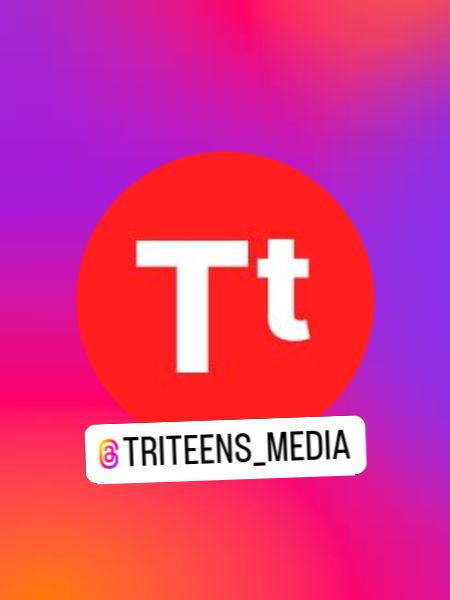We’ve all been there—scrambling to find a missing assignment, forgetting a due date, or feeling overwhelmed and needing a break because of the workload we handle every day.
Like many other students, I struggle to stay organized. It’s hard to juggle extracurricular activities, hobbies, schoolwork, a social life, and sleep. Many of us feel the same when we can’t find simple and effective ways to manage our time and tasks. The struggle is real, and if we don’t figure out how to handle our responsibilities, reduce stress, and achieve our goals, it will only get harder as we get older.
You’re not alone in this struggle. We’ve all been there—scrambling to find a missing assignment, forgetting a due date, or feeling overwhelmed and needing a break because of the workload we handle every day. These challenges can make staying organized seem impossible, but don’t worry. There are strategies and tools to help. Let’s explore some of them.
Strategy #1: Using Calendars

Technology is one of the best tools for staying organized. Most of us have a digital device, so why not use it to our advantage?
One great option is using a digital calendar like Google Calendar, Apple Calendar, Outlook, or Gmail. These calendars let you:
- Plan important dates like tests, meetings, and assignments.
- Set reminders so you don’t forget deadlines.
- Sync across all your devices for easy access anywhere.
If digital tools aren’t for you, don’t worry. A physical planner works just as well. Choose one with enough space for daily notes, and use different colors or symbols to separate school, personal activities, and extracurriculars.
Strategy #2: Keeping Your Backpack Organized

Unfortunately, there’s no app to keep your backpack neat! After a long day, it’s tempting to throw everything into your bag and deal with it later, but that habit can lead to a messy and stressful situation. Here’s how to avoid it:
- Use separate folders or binders for each subject to keep papers from getting mixed up.
- Try color-coded folders for easy identification.
- Store smaller supplies, like pens and sticky notes, in a pouch or container.
- Take five minutes at the end of each week to empty your bag and remove things you don’t need.
Strategy #3: Organizing Your Space at Home

Staying organized at home is just as important. Here are a couple of ways to manage your schoolwork and materials:
- Digital Storage:Platforms like Google Drive, Dropbox, or OneDrive let you store assignments, notes, and documents in one place. Organize files by creating a folder for each subject so you can quickly find what you need.
- Physical Storage:If you prefer paper notes, get a set of folders or file organizers and label each one for a specific subject. Store them in a drawer or box to keep everything tidy. Set a routine—like every two weeks or at the end of a term—to clean out outdated papers.
Strategy #4: Building an Evening Routine

Creating a simple evening routine can make mornings much smoother. Spend 10-15 minutes before bed to:
- Organize your bookbag and check your schedule for the next day.
- Lay out your clothes and prepare your lunch (if needed).
- Write down a quick to-do list for tomorrow.
These small habits can save you time and reduce stress in the morning.
Strategy #5: Managing Distractions

Distractions are one of the biggest barriers to staying productive and organized. Whether it’s endless scrolling on social media, loud environments, or even a wandering mind, distractions can make even the simplest tasks feel impossible. Here are some ways to tackle them effectively:
1. Identify Your Distractions
The first step is understanding what distracts you most. Is it your phone buzzing with notifications, background noise, or an untidy workspace? Write down your main distractions and address them one by one.
2. Use Focus Apps
Technology can help you fight distractions. Apps like:
- Forest: This app makes staying focused fun. Every time you start a task, you plant a virtual tree. If you leave the app before finishing, your tree dies. Over time, you grow a beautiful virtual forest, which is a great motivator to stay on track.
- Cold Turkey: Blocks access to distracting websites or apps. You can customize it to suit your schedule or create stricter rules for particularly challenging tasks.
- StayFocusd: A browser extension that limits the amount of time you spend on distracting sites like YouTube or Instagram.
3. Create a Distraction-Free Workspace
Your environment plays a huge role in how focused you feel. To create a productive space:
- Keep your desk clear of clutter.
- Use tools like noise-canceling headphones to block out background noise.
- Let others in your household know you need quiet time while studying or working.
- Add calming elements like a small plant or a lamp with soft lighting to make the space inviting.
4. Establish Technology-Free Zones or Times
Try scheduling blocks of time where you avoid using your phone or social media altogether. Use these blocks to work on high-priority tasks. A good starting point is to turn off notifications or enable Do Not Disturb mode during study sessions.
5. Break Tasks into Smaller Steps
Sometimes, distractions are simply the result of feeling overwhelmed. When faced with a big project, break it down into smaller, manageable steps. For example, instead of "Write a history essay," break it into:
- Research 3 sources.
- Create an outline.
- Write the introduction.
This approach makes the task feel less intimidating and easier to start.
6. Practice Mindfulness
Distractions aren’t always external. Sometimes, our thoughts can pull us away. Practicing mindfulness through apps like Headspace or Calm can help you regain focus. These apps guide you through short meditation sessions that improve concentration over time.
7. Set Timed Goals
Use a timer to help you stay on task. The Pomodoro technique, where you work for 25 minutes and take a 5-minute break, can be especially effective for keeping your mind engaged without burnout. Apps like Focus Booster (Timestream now) and TomatoTimer are perfect for implementing this technique.
Strategy #6: Rewarding Yourself

Staying organized takes effort, so reward yourself for progress:
- Take a short break after completing a big task.
- Treat yourself to something fun, like a favorite snack or TV show.
- Use apps like Habitica, which turn tasks into a game and make staying organized exciting.
Time Management: The Key to Organization
Time management is the foundation of staying organized. If you can master your time, you’ll have more control over your responsibilities and reduce stress. Here’s how to get started:
1. Understand How You Spend Your Time
Before improving, you need to know where your time is going. Use a time-tracking app like Clockify or simply write down everything you do in a day. This will help you identify time-wasters and plan more effectively.
2. Use the Right Tools
Technology can make time management easier. Here are a few apps designed to keep you on schedule:
- Trello: Create boards to organize tasks, deadlines, and progress. For example, you can create a "To Do," "In Progress," and "Completed" list for your assignments.
- Todoist: A straightforward app for creating task lists and setting priorities.
- Google Calendar: Use it to plan your day, block off study times, and set reminders for deadlines.
- Notion: Combines calendars, to-do lists, and notes all in one platform for ultimate flexibility.
3. Plan Your Day in Advance
Take 10-15 minutes each evening to plan the next day. Write down your top 3 priorities and schedule them for times when you have the most energy. For example, if you’re a morning person, tackle your hardest task first thing.
4. Set SMART Goals
Time management is easier when your goals are clear and actionable. Use the SMART framework to guide you:
- Specific: Be clear about what you need to achieve.
- Measurable: Add metrics to track progress (e.g., "Complete 3 chapters").
- Achievable: Set realistic goals.
- Relevant: Focus on what matters most.
- Time-bound: Set deadlines to stay accountable.
5. Prioritize Effectively
When everything feels urgent, use the Eisenhower Matrix to decide what to tackle first:
- Do first: Important and urgent tasks, like a paper due tomorrow.
- Schedule: Important but not urgent tasks, like studying for a test next week.
- Delegate: Urgent but not important tasks, like organizing class notes.
- Delete: Not urgent and not important tasks, like scrolling through TikTok.
6. Batch Similar Tasks
Grouping similar tasks saves time and mental energy. For example:
- Answer all emails in one sitting instead of spreading them out.
- Study for similar subjects back-to-back, like math and physics, to keep a focused mindset.
7. Take Regular Breaks
Overworking can backfire, leading to burnout and poor performance. Follow the 90/30 rule: Work for 90 minutes, then rest for 30 minutes to recharge.
8. Reflect and Adjust
At the end of each week, reflect on how well you managed your time. Ask yourself:
- What worked well?
- What didn’t work?
- How can I improve for next week?
9. Learn to Say No
Sometimes, the best way to manage time is by avoiding extra commitments. It’s okay to say no to activities or tasks that don’t align with your priorities.
By combining strong time management practices with the right tools, you’ll feel more in control of your responsibilities. This reduces stress, boosts productivity, and gives you more time to enjoy life.
Find What Works for You
Remember, there’s no one-size-fits-all solution for staying organized. The key is to experiment and find what works best for your life and learning style. With a bit of effort and the right strategies, you’ll not only stay on top of things but also reduce stress and set yourself up for success.
If you have questions or comments for me or find an issue with this article feel free to email me at [email protected] or DM us on Instagram below!

Triteens Media is THE media outlet for teenagers. Stories and journalism you can trust. We report on what matters. Follow us if you want amazing reporting coming straight to your email!





